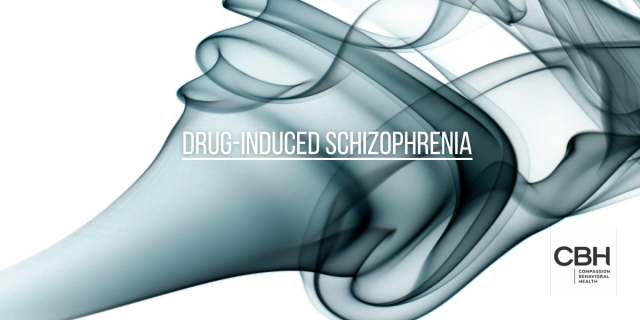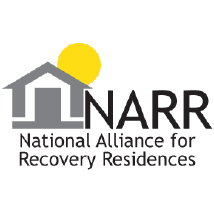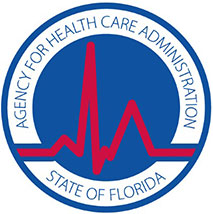Drug-induced schizophrenia is a complex and multifaceted condition that affects individuals who have used drugs. In this article, we will explore what drug-induced schizophrenia is, the causes that contribute to its development, the symptoms to watch out for, available treatment options, and prevention strategies.
What is Drug-Induced Schizophrenia?
Drug-induced schizophrenia refers to a subtype of schizophrenia that is triggered by drug use. Schizophrenia itself is a chronic mental disorder characterized by disordered thinking, emotions, and behavior, with drug-induced schizophrenia specifically attributed to substance abuse.
Drug-induced schizophrenia is a complex condition that warrants further exploration. Understanding the intricacies of this subtype of schizophrenia can shed light on the interplay between substance abuse and mental health.
Call Us Today: (844) 660-0084
Defining the Condition
Drug-induced schizophrenia is diagnosed when an individual exhibits symptoms typically associated with schizophrenia, such as delusions, hallucinations, disorganized speech, and impaired cognitive abilities, following the use of drugs. The symptoms can persist for a significant period after drug withdrawal.
It is important to note that drug-induced schizophrenia is distinct from primary schizophrenia, which is not triggered by substance abuse. The diagnostic process involves careful evaluation by mental health professionals to differentiate between the two conditions.

Research suggests that drug-induced schizophrenia may manifest differently compared to primary schizophrenia. For instance, individuals with drug-induced schizophrenia may experience a more rapid onset of symptoms and have a higher likelihood of recovery after substance cessation.
Prevalence and Demographics
The prevalence of drug-induced schizophrenia varies depending on factors such as the type of substance abused, duration and intensity of use, and individual susceptibility. It is more commonly observed in individuals who have a history of substance abuse or have a genetic predisposition to schizophrenia. Additionally, young adults and males are more prone to developing drug-induced schizophrenia.
Substance abuse can act as a trigger for schizophrenia in susceptible individuals. The use of certain drugs, such as cannabis, amphetamines, and hallucinogens, has been associated with an increased risk of developing drug-induced schizophrenia. However, it is important to note that not everyone who uses these substances will develop the condition.
Understanding the demographics of drug-induced schizophrenia can help inform prevention and intervention strategies. By targeting high-risk populations, such as young adults with a history of substance abuse, healthcare professionals can work towards early detection and intervention.
Furthermore, research is ongoing to identify genetic markers that may predispose individuals to drug-induced schizophrenia. By unraveling the genetic underpinnings of this condition, scientists hope to develop personalized treatment approaches that can effectively address the unique challenges faced by individuals with drug-induced schizophrenia.
The Causes of Drug-Induced Schizophrenia
The development of drug-induced schizophrenia involves a combination of factors that interact with each other, including the role of substance abuse and genetic and environmental influences.
Drug-induced schizophrenia is a complex condition that arises from a multitude of factors. Understanding these causes is crucial for effective prevention and treatment strategies. Let’s delve deeper into the role of substance abuse and the influence of genetic and environmental factors.
Role of Substance Abuse
Substance abuse, particularly the prolonged and excessive use of certain drugs, can disrupt the brain’s delicate chemistry, leading to the onset of schizophrenia-like symptoms. The specific mechanisms by which drugs contribute to the development of the condition are still being studied, but researchers have made significant progress in unraveling this intricate relationship.
When drugs are introduced into the body, they interact with various neurotransmitter systems, altering their normal functioning. For example, drugs like amphetamines and cocaine can increase the release of dopamine, a neurotransmitter associated with pleasure and reward. This excessive release of dopamine can overwhelm the brain, leading to an imbalance in the delicate interplay of neurotransmitters.
Moreover, substances like cannabis, LSD, and hallucinogens can distort perception and cognition, mimicking the symptoms of schizophrenia. Prolonged exposure to these substances can disrupt neural pathways, leading to long-lasting changes in brain structure and function.
Call Us Today: (844) 660-0084
Genetic and Environmental Factors
Genetic factors also play a significant role in drug-induced schizophrenia. Individuals who have a family history of schizophrenia or other mental disorders may be genetically predisposed to developing the condition. Researchers have identified specific genes that are associated with an increased risk of developing schizophrenia, and the interaction between these genes and drug exposure is an area of active investigation.
However, genetics alone cannot explain the development of drug-induced schizophrenia. Environmental factors also contribute to the manifestation of the condition. Stress, trauma, and social isolation are known to increase the likelihood of developing schizophrenia, and when combined with drug abuse, the risk is further amplified.
Stress, in particular, can have a profound impact on the brain. It disrupts the normal functioning of neurotransmitters and can trigger a cascade of physiological responses that ultimately lead to the development of schizophrenia-like symptoms. Traumatic experiences, such as physical or emotional abuse, can also alter brain development and increase vulnerability to drug-induced schizophrenia.
Moreover, social isolation and a lack of social support can exacerbate the effects of drug abuse. The absence of a strong support network can lead to feelings of loneliness and despair, further contributing to the development of schizophrenia-like symptoms.
Understanding the intricate interplay between genetic and environmental factors is crucial for developing targeted interventions to prevent and treat drug-induced schizophrenia. By addressing both the individual’s genetic predisposition and the environmental triggers, healthcare professionals can provide comprehensive care and support to those affected by this complex condition.
Symptoms of Drug-Induced Schizophrenia
Identifying the symptoms of drug-induced schizophrenia is crucial for early intervention and effective treatment. The symptoms can be categorized into cognitive, emotional, and behavioral manifestations.
Cognitive Symptoms
Individuals with drug-induced schizophrenia often experience cognitive impairment, including difficulties with memory, attention, problem-solving, and executive functioning. They may have trouble organizing their thoughts and expressing themselves coherently.
Emotional Symptoms
Emotional symptoms of drug-induced schizophrenia can range from extreme mood swings to flat affect, where individuals display a limited range of emotions. They may experience intense feelings of paranoia, anxiety, or depression.
Behavioral Symptoms
Behavioral symptoms may include delusions, where individuals hold false beliefs that are not based on reality. They may also experience hallucinations, perceive things that are not there, and engage in disorganized and erratic behavior.
Treatment Options for Drug-Induced Schizophrenia
Treating drug-induced schizophrenia requires a comprehensive approach that addresses both the underlying substance abuse problem and the associated symptoms of schizophrenia.
Medication and Pharmacotherapy
Antipsychotic medications are commonly prescribed to manage the symptoms of drug-induced schizophrenia. These medications help regulate the brain’s neurotransmitter levels and reduce the severity of delusions, hallucinations, and other psychotic symptoms.
Psychotherapy and Counseling
Psychotherapy, such as cognitive-behavioral therapy (CBT) and supportive therapy, can be effective in helping individuals cope with the emotional and cognitive symptoms of drug-induced schizophrenia. Counseling sessions can also address any underlying trauma or psychological issues that may contribute to the development of the condition.
Lifestyle Changes and Self-Care
Engaging in healthy lifestyle practices, such as regular exercise, balanced nutrition, and adequate sleep, can support overall mental well-being. Additionally, individuals with drug-induced schizophrenia benefit from establishing a stable routine and participating in activities that help reduce stress and promote social connections.
Prevention Strategies
Preventing drug-induced schizophrenia requires a comprehensive approach that addresses substance abuse prevention and early intervention.
Substance Abuse Prevention
Education and awareness programs aimed at preventing substance abuse play a crucial role in reducing the risk of drug-induced schizophrenia. It is important to educate individuals about the potential risks and consequences of drug use, as well as provide resources for early intervention and treatment.
Early Intervention and Education
Early identification and intervention for substance abuse issues can help prevent the development of drug-induced schizophrenia. Offering appropriate support, counseling, and education to individuals who are at risk or already struggling with substance abuse can minimize the likelihood of transitioning into a chronic mental health condition.
Overall, understanding drug-induced schizophrenia is essential for promoting early intervention and effective treatment. By addressing the causes, symptoms, and available treatment options, we can pave the way for individuals affected by this condition to live fulfilling and productive lives.
Comprehensive Care for Drug-Induced Schizophrenia at CBH
At Compassion Behavioral Health, we are committed to providing specialized care and support for individuals affected by drug-induced schizophrenia. Our approach is grounded in a deep understanding of the complex interplay between substance abuse and mental health. We offer a range of services tailored to meet the unique needs of each individual, including medication management, psychotherapy, and comprehensive counseling.
we also emphasize the significance of a supportive environment in the recovery journey. We work closely with families and caregivers to provide them with the tools and resources needed to support their loved ones effectively. Call us today to learn how you can get started today.












